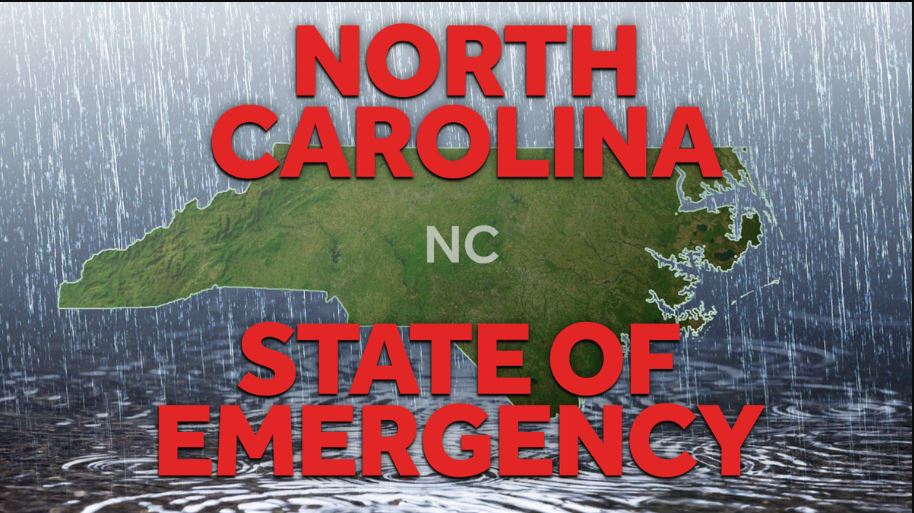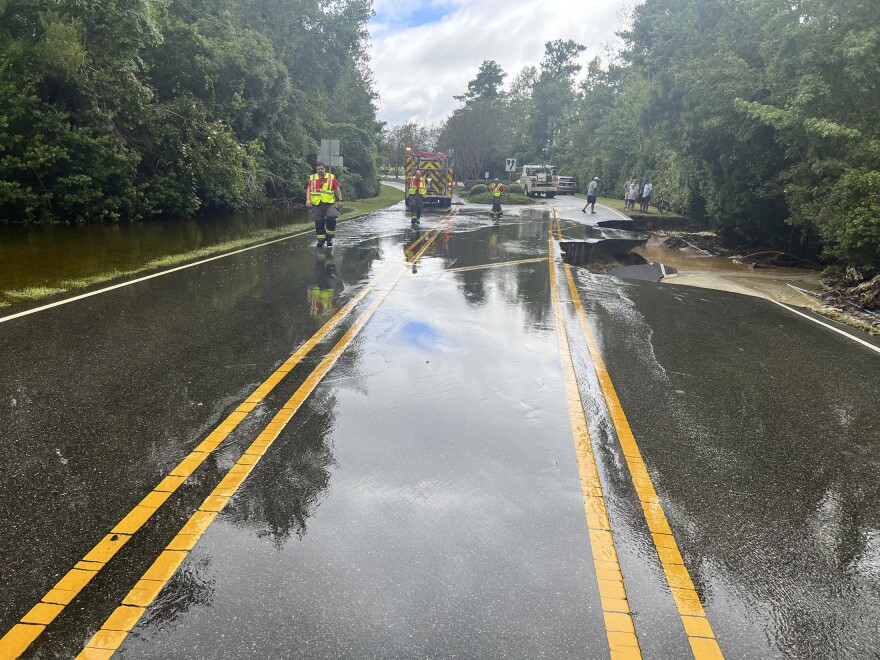
Governor Cooper Declares State of Emergency for Impacted Areas in Response to Severe Flooding and Heavy Rainfall in Southeast North Carolina
Today, Governor Roy Cooper signed Executive Order No. 313 declaring a State of Emergency for four counties in southeastern North Carolina that suffered damage from hazardous weather including severe flooding and heavy rainfall on September 16, 2024.

Potential Tropical Cyclone Eight has caused significant flooding and impacts to public and private property and critical infrastructure including roads and bridges. The storm dropped over 18 inches of rain in less than a day in some locations. This declaration makes additional assistance available to Bladen, Brunswick, Columbus and New Hanover counties.

“This state of emergency declaration will help counties hit by severe rainfall and flooding to recover from this storm,” said Governor Cooper. “I urge North Carolinians across the state to remain cautious as many roads are still dangerous.”
The Order activates the State Emergency Operations Plan and allows for the North Carolina Department of Transportation and the North Carolina Department of Public Safety to take the appropriate action to ensure the protection and safety of North Carolina residents.

Brunswick County declared a local State of Emergency along with the municipalities of Boiling Springs Lakes, Oak Island, Southport, Saint James, Sandy Creek, Bolivia, Bald Head Island and Varnamtown. Shelters in Brunswick County have been opened at South Brunswick Middle School and Bolivia Elementary School. In neighboring New Hanover County, Carolina Beach and Kure Beach have declared a State of Emergency, and yesterday, the American Red Cross assisted displaced residents in Carolina Beach at the Pleasure Island Recreation Center, who were subsequently moved to a local hotel for the night.

North Carolinians can visit DriveNC.GovEO313_SOE_PTC8 (1) for the latest roadway conditions from the N.C. Department of Transportation (NCDOT). As of Tuesday, 52 roads in 12 counties were closed including eight primary routes with the majority in Brunswick County. Major road closures include portions of U.S. 17, N.C. 211 and N.C. 133 in Brunswick County and a stretch of N.C. 12 on the northern end of Ocracoke Island. NCDOT crews have been working to reopen roads as quickly as possible. NCDOT urges drivers to stay off the roads during and after inclement weather unless necessary. Do not drive through standing or moving water.
Leave a Reply